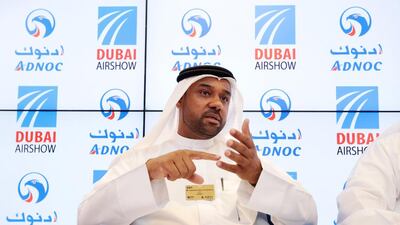The fuel retailer Adnoc Distribution expects to post a profit next year for the first time since 2005 thanks to the new system of pricing petrol on a formula linked to international oil prices, its chief executive said.
The federal government introduced monthly price-setting based on global markets in August in a bid to curtail losses that were affecting the fiscal budget.
Between 2005 and July his year, government subsidies on petrol reached about Dh40 billion.
“In 2016, we shouldn’t have any losses for the first time since 2005,” said Abdulla Al Dhaheri, who was speaking on the sidelines of the Dubai Airshow.
Currently, prices are set by a committee led by the energy ministry using undisclosed benchmarks linked to international markets. Oil prices play a major part, and Brent crude has more than halved since last year’s highs of about US$115 per barrel.
There is no sign of oil prices rising significantly any time soon. Petrol prices at the UAE’s pumps this month fell below July’s levels.
Adnoc Distribution’s revenues last year reached Dh29bn and are expected to drop to about Dh23bn this year owing to the weaker oil price.
Separately, it expects to boost its investments by 25 per cent in 2016 to Dh1.5bn from Dh1.2bn this year, with most of the money going towards adding new petrol stations.
Demand for fuel is growing at 7 per cent per year.
The company will have about 507 stations by 2017, including new additions, acquisitions and transfer of ownership of petrol stations. Currently it has 385 stations. Adnoc is adding 125 new stations and plans to take over 59 petrol stations in Dubai and other assets around the country as part of the second phase of acquiring petrol stations from fuel retailer Emarat.
In the first phase, Adnoc took over 75 petrol stations run by Emarat in Sharjah, Ras Al Khaimah, Ajman, Umm Al Quwain and Fujairah, in accordance with an agreement signed with Emarat in September 2013.
Mr Al Dhaheri declined to give a value for the takeover of Emarat stations.
Adnoc has also started refurbishing 25 non-operational service stations in Sharjah transferred from the fuel retailer Enoc.
The company is investing Dh750 million in a fuel depot at the new Midfield terminal in Abu Dhabi that should be in operation in the third quarter of next year.
dalsaadi@thenational.ae
Follow The National's Business section on Twitter

